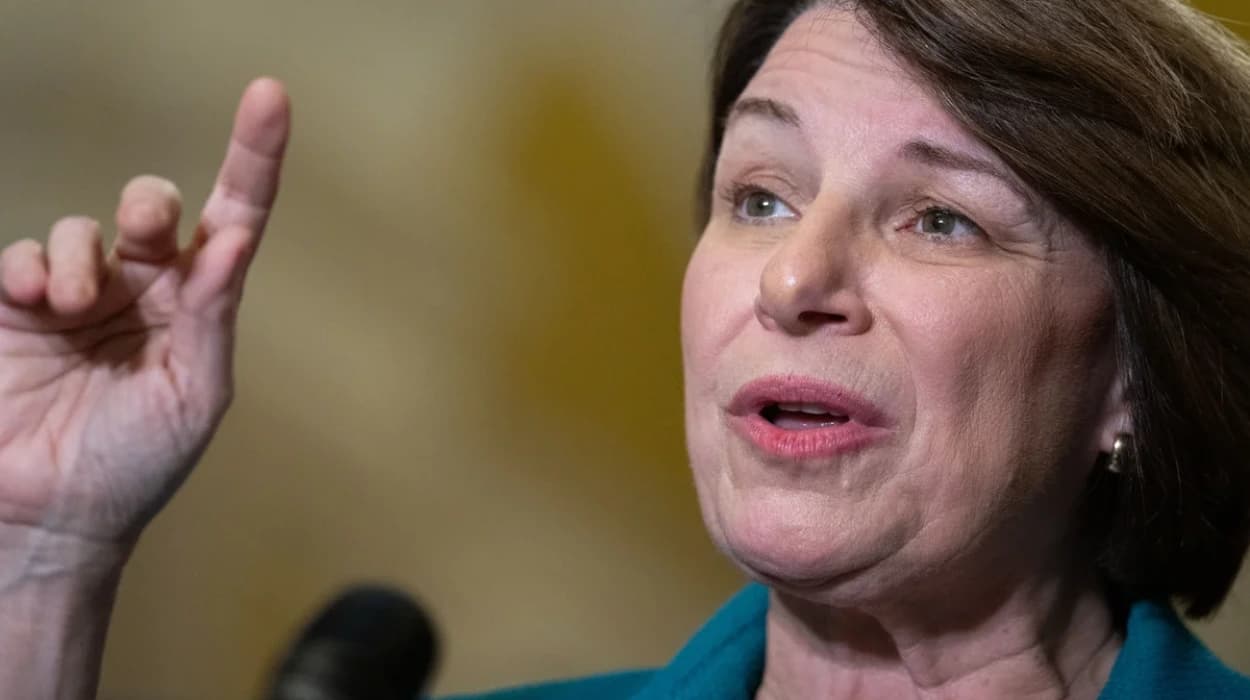The United States is witnessing a mounting concern over the stability of its constitutional framework, as prominent figures in the Senate voice warnings about an impending constitutional crisis. Senator Amy Klobuchar (D-Minn.) has emerged as a pivotal commentator on this warning, highlighting the increasing pressure on the judicial system and the broader democratic institutions as they face unprecedented tests.
The Rising Alarm: Klobuchar’s Warning
Senator Amy Klobuchar has cautioned that the nation is progressively nearing what she terms a constitutional crisis, a situation where foundational democratic norms and constitutional governance face severe challenges or breakdown. Speaking in a high-profile interview on a major news platform, she acknowledged that while the crisis is not yet fully realized, the warning signs are increasingly evident.
Klobuchar’s concerns focus on the current political climate marked by relentless testing of constitutional limits, particularly by former President Donald Trump and his administration’s confrontations with the judiciary. She outlined how repeated challenges to judicial authority, disregard for legal rulings, and attempts to sway institutional checks and balances create an environment where democratic institutions could be compromised.
However, Klobuchar offers a cautious note of optimism, emphasizing that the US is not yet fully engulfed in crisis because courts have largely upheld their duties and a growing, albeit limited, bipartisan pushback is emerging within Congress and among constituents.
Judicial Resilience and the Rule of Law
A cornerstone of the warning arises from the judiciary's central role in maintaining constitutional governance. Klobuchar’s insistence that judges are “standing up and doing their job” reflects the judiciary’s critical function as an independent arbiter amid political pressures.
The judicial system has confronted a series of high-stakes cases challenging executive actions, policies, and procedural norms. Courts have issued rulings that preserve constitutional boundaries and check executive overreach, demonstrating the fundamental separation of powers designed to prevent authoritarianism and preserve rule of law principles.
This judicial resilience serves as a bulwark against the dissolution of democratic governance, with courts providing a legal framework for resolving political disputes peacefully and upholding civil liberties.
Congressional Dynamics and Bipartisan Challenges
Klobuchar points to an emerging, although fragile, bipartisan willingness to act against executive policies that strain constitutional norms. She highlights a recent Senate resolution, supported by a small but significant group of Republican senators, aiming to rescind controversial tariffs imposed on Canadian imports by the prior administration.
While this resolution is largely symbolic and lacks binding legislative power, its passage signals cracks within political alignments and demonstrates some legislators’ readiness to counterbalance executive assertions of power. This development is encouraging from Klobuchar’s perspective, providing hope that elected representatives still prioritize national interest and constitutional stability over partisan allegiance.
Such bipartisan cooperation, however limited, is vital to maintaining democratic checks and balances. Klobuchar underscores the need for “four in the House, four in the Senate” willing to uphold constitutional principles to anchor democracy during turbulent times.
Public Sentiment and Constituent Pressures
Another critical dimension Klobuchar identifies is public reaction and constituent attitudes, which shape political accountability and legitimacy. During a recent rural tour, she heard firsthand concerns from voters, including those who originally supported former President Trump but now express dissatisfaction with economic instability, retirement insecurity, and social service uncertainties.
This constituency frustration contributes to a political environment marked by volatility and polarization. Klobuchar interprets these sentiments as signs of “chaos,” underscoring the link between governance challenges and public trust in democratic institutions.
She stresses that for democracy to endure, citizens must remain engaged, informed, and willing to hold leaders accountable, complementing judicial and legislative functions in safeguarding constitutional order.
The Threats Posed by Political Polarization
Underlying Klobuchar’s warnings is the broader issue of deep political polarization, which strains the resilience of US democracy. Partisan divides, amplified by misinformation and distrust in institutions, increasingly erode shared norms foundational to constitutional governance.
Attempts by political leaders to delegitimize legal rulings, undermine electoral processes, or exhibit disregard for institutional boundaries fuel the risk of constitutional breakdown. The specter of a “constitutional crisis” involves scenarios where government dysfunction disrupts the orderly exercise of power, potentially crippling democratic mechanisms.
Klobuchar’s perspective illuminates these dangers, warning that without collective resistance and institutional integrity, the US risks devolving into political instability with significant domestic and international ramifications.
The Road Ahead: Safeguarding the Constitution
To forestall a constitutional crisis, Klobuchar advocates for a multi-faceted approach emphasizing institutional stewardship and public engagement. Key elements include ensuring judicial independence, reinforcing congressional oversight, promoting bipartisan dialogue, and encouraging civic participation.
By supporting courts that uphold constitutional limits, legislators who resist partisan pressures in favor of national interests, and citizens who assert their democratic rights and responsibilities, the US can strengthen its constitutional foundations.
Klobuchar’s message is clear: preservation of democracy demands vigilance, courage, and collaboration across all branches of government and society. Only through such concerted efforts can the nation navigate current challenges and maintain its constitutional integrity.
Senator Amy Klobuchar’s warnings about an impending constitutional crisis capture the profound challenges facing the United States today. While the nation is not yet in a full-blown crisis, rising tensions between the executive, judiciary, and legislature, combined with polarized politics and civic unease, present significant risks to democratic stability.
The resilience of the courts, some bipartisan legislative pushback, and awakened public scrutiny provide reasons for guarded optimism. Nonetheless, vigilance is paramount. Upholding the rule of law, strengthening democratic institutions, and fostering civic responsibility remain the pillars for averting a constitutional breakdown.
Understanding the context and substance of Klobuchar’s concerns invites deeper reflection on the fragility of constitutional governance and the ongoing imperative to protect democratic norms in a changing political landscape.

